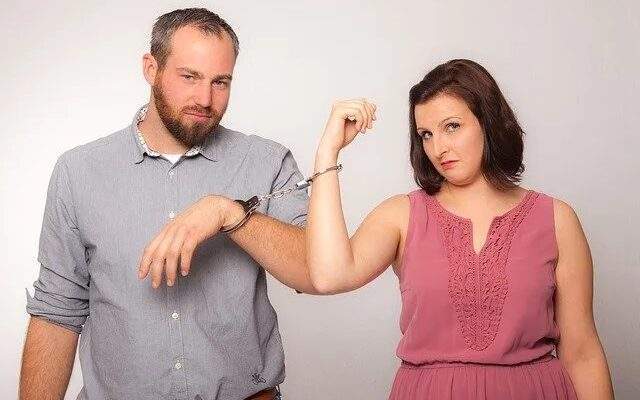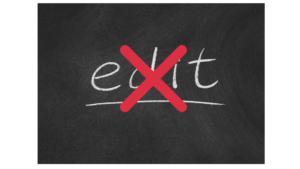Table of Contents
Innocent Spouse, Bankruptcy & Fraud: Bartenwerfer v Buckley Summary
Can the fraud of one spouse be imputed to an innocent spouse, thereby making the debt nondischargeable to both in a bankruptcy? Meet the Bartenwerfer family.
February 22, 2023 update: The Supreme Court unanimously ruled that debt incurred by fraud is not discharged in bankruptcy, regardless of individual culpability. The Court parsed the plain language of Section 523(a)(2)(A), whose key language says “does not discharge an individual debtor from any debt … obtained by … false pretenses, a false representation, or actual
fraud.”
The Court’s analysis read that Congress clearly was focused on the debt. Because of the passive voice of the statute, it pulls the actor off the stage.
All of this said, innocent people are sometimes held liable
for fraud they did not personally commit, and, if they de-
clare bankruptcy, §523(a)(2)(A) bars discharge of that debt.
The Concurrence: There is a more common sense analysis, which doesn’t expand the Court’s precedent of business agency culpability into marriage and spousal culpability. That’s the Sotomayor and Jackson concurrence. There, they focus on the fact that these spouses were found by the Bankruptcy Court to have an agency relationship, and obtained the debt after they formed a partnership.
That argument didn’t win the day, however, as seven Justices still prevailed with the majority point that partnership or none, if you owe the debt obtained by fraud, you can’t discharge it in bankruptcy.
Bottom line: The Supreme Court ruled unanimously that debt obtained by fraud is not discharged, period. This is regardless of the knowledge or intent of the debtor (such as a business partner, or in this case, an innocent spouse). Harsh, but clear.
Jan 2023 update: this case is pending before the SCOTUS in 2023.
Bartenwerfer v. Buckley Summary: the Supreme Court case
The Supreme Court is set to rule on this very issue in 2023. This is an appeal of a bankruptcy case with an innocent spouse whose husband was found liable for prepetition nondisclosure which turned into a bankruptcy court finding of nondischargeable fraud.
The basic facts are that Mr. Bartenwerfer (Debtor) sold a house to Mr. Buckley (Creditor), who then later found a bunch of undisclosed defects on the remodeled home. In fact, Debtor signed a statutory transfer disclosure statement which contained false representations that Creditor relied upon. Creditor sues. After three years at trial, a jury found Debtor liable for, among other things, nondisclosure of the defects. The jury also awarded Creditor, after reduction, about $250,000 in damages.
Debtor then filed Chapter 7 bankruptcy, and to the surprise of nobody, Creditor followed him into the bankruptcy and filed and succeeded with a motion to have the nondisclosure portion of his quarter-million dollar judgment found nondischargable per 11 USC 523(a)(2)(A).
The bankruptcy court then made a specific ruling in favor of Mrs. Bartenwerfer — Debtor’s spouse — was not liable for the debt. This was based on the facts that she didn’t live at the property after the renovations, she didn’t visit it again until Debtor and Creditor met there to sign the disclosure statement. The court also found she never spoke with the laborors, and had an agreement her Debtor husband that Debtor would assume responsibility and make it his full-time job to supervise the renovations. In re Bartenwerfer, 596 BR 675, 685-686 (NDCA, 2019)

The Split on Standards for Imputed Fraud to a Spouse
SCOTUS is Strang: Fraud imputed without benefit or knowledge
There are a few ways courts have approached this. One approach, the most absolute and the strictest, is that any agency imputes the fraud to others in the partnership.
We start with the Supreme Court case of Strang v. Bradner, 114 US 555 (1885). Here, there was a business partnership involving wool consignment. The SCOTUS determined that one of the partners had committed fraud, and that was not discharged in bankruptcy. Turning then to whether the partner should also be held liable, it ruled that “we are of opinion that his fraud is to be imputed, for the purposes of the action, to all the members of his firm.” Id. at 561.
The Supremes went on: “…if, in the conduct of partnership business, and with reference thereto, one partner makes false or fraudulent misrepresentations of fact to the injury of innocent persons who deal with him as representing the firm, and without notice of any limitations upon his general authority, his partners cannot escape pecuniary responsibility therefor upon the ground that such misrepresentations were made without their knowledge.” Id.
Clearly, the Supreme Court back in 1885 considered the partnership business as one in which conscious decisions are made with regard to financial and pecuniary agency, and “…especially so when, as in the case before us, the partners, who were not themselves guilty of wrong, received and appropriated the fruits of the fraudulent conduct of their associate in business.” Id. Â While the SCOTUS discussed “fruits of the fraud” and benefits, other courts have ignored this as if it were dicta.
Strang was followed by the Fifth Circuit, when it held “that innocent partners were precluded from discharging debts generated by their partner’s fraud even if they did not benefit monetarily from the fraud.” In re M.M. Winkler & Assocs, 239 F.3d 746, 748 (5th Cir.2001).” The 5th Circuit continued: “we hold that §523(a)(2)(A) prevents an innocent debtor from discharging liability for the fraud of his partners, regardless whether he receives a monetary benefit.” Id. at 751.
There are other interpretations of this, which has led to some Strang bedfellows.
Sixth Circuit: Receipt of Benefits
A different standard involves benefiting from the fraud. Following Strang, and including as a requirement its language of “fruits of the fraudulent conduct” — that is, benefit from the fraud — is the Sixth Circuit. There, the Circuit Court held that “[T]he fraud in Strang was perpetrated within the scope of the partnership’s business, and, as in the case at bar, the innocent partners received the fruits of the fraudulent conduct.” In re Ledford, 970 F.2d 1556, 1561 (6th Cir. 1992).
Again, in Ledford as in Strang, we have a business case where partners made a conscious decision to be bound by each other’s financial gains, losses, and wrongdoing.
Eighth and Ninth’s Huh and Walker: Knew or should have Known
The Ninth Circuit had adopted a standard that “more than a principal/agent relationship is required to establish a fraud exception to discharge. While the principal/debtor need not have participated actively in the fraud for the creditor to obtain an exception to discharge, the creditor must show that the debtor knew, or should have known, of the agent’s fraud. ” Sachan v. Huh (In re Huh), 506 B.R. 257, 271-272 (9th Cir BAP, 2014).
This reasonable standard adopted from a long-established case in the the Eighth Circuit: “If the principal either knew or should have known of the agent’s fraud, the agent’s fraud will be imputed to the debtor-principal.” In re Walker, 726 F.2d 452,454 (8th Cir. 1984).
Back to Bartenwerfer
The Standards Used by Courts in Bartenwerfer
With that review of standards, what happened in Bartenwerfer? Creditor appealed to the Ninth Circuit BAP, who remanded, asking the bankruptcy court to determine if spouse Mrs. Bartenwerfer was liable for the nondisclosure of defects using the “knew or should have known” standard in Walker v. Citizens State Bank, 726 F.2d 452 (8th Cir 1984). There was an evidentiary hearing, and a finding that Mr. Bartenwerfer’s fraud could not be imputed onto Mrs. Bartenwerfer because she did not know of the fraud. In re Bartenwerfer (9th Cir BAP NC-19-1016-TaFB, 2020). Citing Walker, the BAP wrote that the “bankruptcy court did not err in its determination that Mr. Bartenwerfer’s fraud cannot be imputed to Mrs. Bartenwerfer.” Id. at 11.
In the appeal to the Ninth Circuit Court of Appeals, the 9th Circuit abandoned Huh and Walker, and held that the absolute “basic partnership principles” and that the SCOTUS strict agency precedent should make Mrs. Bartenwerfer liable for the nondisclosure of the defects. In re Bartenwerfer (9th Cir, 2021). The Ninth Circuit treated a the unknowing spouse like a business partner, and applied the formal agency standard to her, citing Strang, as well as In re Cecchini, 780 F. 2d 1440 (9th Cir, 1986).
Which puts the case before the Supreme Court, where in late January 2023, it has agreed to review the issue.
Strang should be limited to business agency
Strang is a business case, and it should not be extended to marriages. There is precedent for this balanced approach.
The Eight Circuit in 2001 followed the 11th Circuit in limiting the applicability of strict Strang to only business agency. “We agree with the Eleventh Circuit that Strang should not be extended beyond its basis in agency law to include the much broader sweep of § 20(a) liability.” Owens v. Miller, 276 F.3d 424 (8th Cir. 2001), citing Hoffend, 261 F.3d at 1153. If the spouse knew or should have known, then the Huh and Walker standard of liability would apply. This is the right balance and approach.
It seems to be a stretch to apply partnership agency standards of imputing fraud to a marriage, particularly when there is an innocent spouse who does not meet the “knew or should have known” standard. In a business venture, both partners go into business and willingly realize and take the risk that there will be contracts, statements, and agreements. Both are savvy and assume these risks, gains, and losses.
In a marriage, there is often one spouse much more knowledgeable in various topics, whether it’s keeping the checkbook or running the family business. When spouses say “I do,” while agreeing to love in sickness and health, the spouses are not knowingly agreeing to assume the burden of imputed fraud when their spouse secretly does wrong and commits fraud. Marriage is not a business partnership.
It’s hoped that the Supreme Court in reviewing the issue and appeal from the 9th Circuit follows the logic and common sense of the 9th Circuit BAP, Walker, and Owens, and refrains from creating new obligations in marriages that harm innocent spouses for the fraud of the other.





